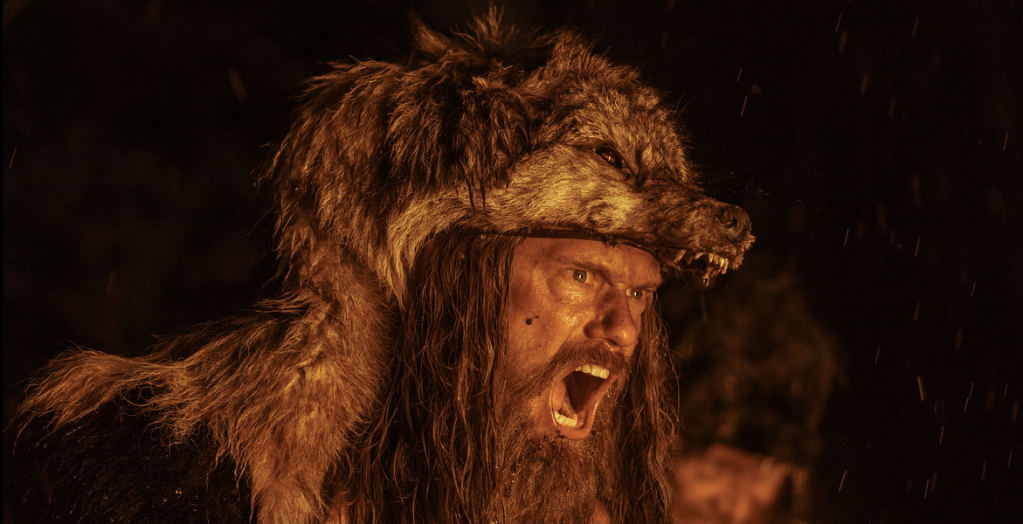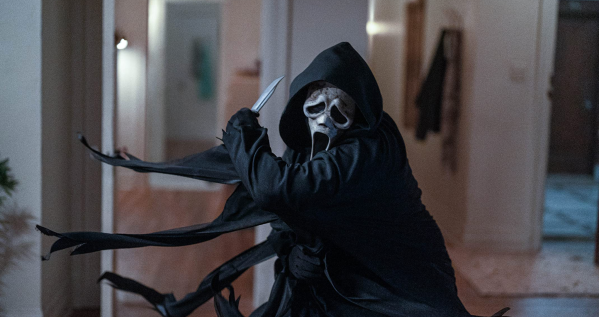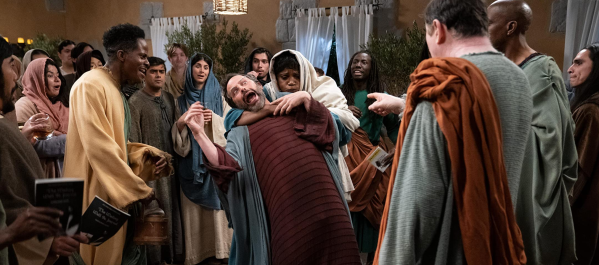There are three topics that popular Western storytelling, especially at the movies, currently struggles to engage seriously: history, spirituality, and young men. When history is portrayed, it is almost always through a postmodern lens. It is judged and manipulated, for better or worse, to fit contemporary worldviews and issues. Consider films like The Last Duel, which pretends 14th century French women were more despised and disbelieved than we know from the film’s source case to make a point about current Western politics, or The Revenant, which compresses the American West’s timeline to judge Native American genocide and the overexploitation of natural resources. However useful these manipulations may be for storytelling, they are not an objective way to understand history.
When spirituality appears in film, it fares somewhat better than the other two topics but is still often twisted or ignored. Look at last year’s Benedetta, in which the Catholic church is cartoonishly villainized and its protagonist’s spirituality eroticized beyond recognition, or Marvel flicks like Black Panther and Shang-Chi, which both take specific cultures’ mystical beliefs and portray them as sanitized conglomerations. These religions were and are important to people for reasons never explored in the films.
Then as far as young men are concerned, most movies feel beyond worrying about their needs at the moment in favor of bringing attention to historically oppressed people groups. With varying levels of success, recent MCU, Star Wars, and Matrix franchise entries let guys know it’s time for the girls to take over; movies like Knives Out portray their male characters as evil, ridiculous, or idiotic; and toxic masculinity is constantly excoriated without providing a tenable alternative in films like The Invisible Man.
Many of these films are good and contemplate worthy themes, but they are exemplary of a certain cultural unseriousness. Enter The Northman, a film that tries to remedy this situation for postmodern audiences by looking to premodern poetry.
The Northman is directed by Robert Eggers of The Witch and The Lighthouse fame, written by Eggers and Icelandic poet Sjón, initiated and produced by Alexander Skarsgård, and advised by archeologist Neil Price, folklorist Terry Gunnel, and historian Jóhanna Friðriksdóttir. This all-star crew brings us a story from 895 A.D., in the early Viking age, a wild but culturally rich time right before Iceland’s Althing parliament was founded in 930 A.D.
The film takes its characters and plot from an Icelandic Viking saga, specifically as found in the Chronicon Lethrense and 12th century Danish historian Saxo Grammaticus’s Gesta Danorum, which takes its plot from the same tales that inspired Shakespeare’s Hamlet. Various other sagas drift in and out of the film’s narrative as well.
The Northman tells the story of Amleth (Alexander Skarsgård), a former prince of Hrafnsey who saw his birthright stolen from him when his Uncle Fjölnir (Claes Bang) killed his father, King Aurvandil the War Raven (Ethan Hawke), and married his mother, Queen Gudrún (Nicole Kidman). He escapes his uncle and swears revenge, then spends the next years of his life living among a berserker Viking band.
As a child, Amleth is spiritually bound to his future throne and the supernatural world of Nordic animal spirits and gods by his father’s adviser, Heimir (Willem Dafoe), and when he reaches adulthood, he uses this connection to the spirit world to forge a relationship with a bear-wolf spirit that helps him in battle. He fights without the honor his father had, and stands by passively accepting the atrocities his comrades at arms commit in the villages they pillage. This changes, though, when a fox leads Amleth to a Svetovit-worshiping Seeress (Björk), whom Odin and Heimir use to remind Amleth of his duties.
Soon, thanks to ravens’ aid, Amleth discovers a batch of captured slaves headed for Fjölnir, who, having squandered and lost his kingdom, is now a banished farming chieftain in Northern Iceland. Amleth knows what he should do: shed his warrior’s garb, brand himself a slave, and stow away to the land of exile. There, he must find a way to regain some of what he has lost and avenge his father. On the journey, he allies with a Slavic earth sorceress, Olga (Anya Taylor-Joy), who claims their two fates are intertwined, and they begin to help each other, as spies, avengers, and survivors.
The Northman honors its history and spirituality by painstakingly and accurately presenting them as literally real and in their own, actual context. The civilization presented in the film is a patriarchal, misogynistic, slave-holding, colonizing one that honors glory, duty, and fate in ways revolting to today’s sensibilities. Yet, unusually, the filmmakers present this story and its time period without recontextualization, and as if everything its characters believe, religiously and superstitiously, is true. Eggers told IGN, “If Vikings believed in Valkyries, we’re gonna have Valkyries. Whatever was in the mindscape of the Viking age, we tried to realize that in a grounded way.”
Eggers’ three films thus far are all like this. “I’m never trying to make a movie with a message,” Eggers told Marc Maron. “My whole … way in is like: ‘How do I present the mindset of the people in this world, in this period, without judgment?’” In The Witch, both the God the Calvinist Puritans worship and the Devil they fear, as well as the murderous witches who follow him, are real and consequential. In The Lighthouse, the sailors’ gods and fairy-tale creatures of the sea not only exist but also come up from time to time for a visit. The stories’ characters’ actions are the same. No one in The Northman pauses to opine the evils of slavery and mistreating women or how wrong it is to plunder other communities. The story does not try to justify itself, and its characters only know what they would have known at the time. We can look at the story with our own viewpoint, and of course we should to an extent, but the historical context remains, and we should confront it on its own terms.
Amleth’s faith is rewarded, and other characters’ scorn toward faith punished. Because Amleth has faith, Odin himself and other magical beings intervene to help redirect Amleth to the right path at points. Olga’s earth gods connect her with Amleth’s mission, to her own benefit. Meanwhile, Fjölnir’s men miss their true opponent because they despise their Christian slaves’ religion. One of Fjölnir’s close advisers sneers, “No god is going to help you with this,” and when he listens to her, Odin temporarily rescues Amleth from him. The more the characters trust their beliefs here, the more they are aided by the supernatural world.
Concerning young men, The Northman joins a recent series of medieval and fantasy adjacent films that contemplate the ways young men might interact with greatness, especially The Green Knight and Dune. The Green Knight asks how a shiftless young man might regain a combination of both greatness and goodness if he is living with a dying generation who was both good and great but did not properly pass their knowledge down to their children. Dune asks how a young man might yield greatness if he does not desire it but has it thrust upon him. The Northman asks what a young man is to do when the previous generations lovingly taught him how to be great and strong in both greatness and goodness only to have his inheritance prematurely snatched from his grasp.
Amleth discovers he must confront seemingly endless evil cunning and brutality in order to find redemption once his kingdom has been stolen. He will have to become cunning himself, rather than only strong. He will need to stay composed and steeled for his tasks. He will have to maintain his faith and mission in the face of humiliation. He will have to war in ways unimaginable to more established civilizations. He will have to protect the weak, helpless, and innocent even if they do not always thank him or help him. He will have to remember the past well and guard himself against rewritten history and perversions of the family dynamic. And in the end, he will have to pave a way for the next generation, because pulling a family or community out of darkness rarely happens in a single generation. The darkness must be continually repelled.
The Northman does have moments of weirdness that may put off some viewers, and its usually unexplained depiction of Norse spirituality and culture may shock. Even so, there is much to admire here. We do not often get such a film as The Northman, especially one that so daringly ponders the premodern world.








Please note that we at The Dispatch hold ourselves, our work, and our commenters to a higher standard than other places on the internet. We welcome comments that foster genuine debate or discussion—including comments critical of us or our work—but responses that include ad hominem attacks on fellow Dispatch members or are intended to stoke fear and anger may be moderated.